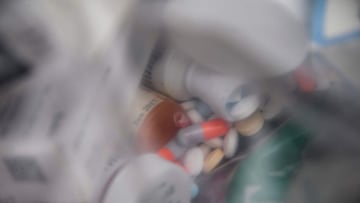What are some of the dangers of Melatonin? Official report says overdoses on the rise in children.
Melatonin is a hormone that regulates sleep. Some who suffer getting a good nights rest use it to help them fall asleep, but is it effective?

Around seventy million people in the United States struggle with insomnia or other sleeping issues. To help fall or stay asleep some people turn to an over-the-counter drug called Melatonin.
Known as the hormone of darkness, Melatonin tells your body that it is nighttime and helps people prepare for sleep. However, before you pop down to your local CVS or Walgreens, there are a few risks and facts to keep in mind.
First, scientists have shown that melatonin does not actually make a very effective sleep aid. While the drug may not be useful everyday, experts do say that it could be used to help someone adjust to a new timezone while traveling or after a trip.
In a video produced by Ted, researchers looked at recent studies and found that taking melatonin only helped people fall asleep around three minutes faster. When looking at the sleep quality, the drug only helped increase how well someone slept by around two percent.
There are also many potential side effects when taking melatonin that should be considered. The Food and Drug Administration (FDA) found that compared to those given a placebo those who took melatonin were more likely to experience daytime tiredness (+1.66 percent), headaches, and dizziness (.74 percent).
See also: Could a high-protein diet help you get a deeper sleep?
Why are melotonin overdoses on the rise?
Related stories
Unlike other drugs, melatonin is not subjected to the same scrutiny by the FDA. This is because they are classed as “dietary supplements”, meaning there is a higher risk of the concentration of the drug being larger than advertised. For those who want to protect against buying a miss-marked product, there are various certification schemes that run tests on the contents to ensure they match with what is being advertised. These include Consumer Labs, NSF, USP, and UL.
A study by the Center for Disease Control and Prevention’s (CDC) has published a new report detailing how children are at risk from the drug. More than 260,000 cases of melatonin ingestion were reported, and from this more than 27,000 children required treatment in a health care facility. Between 2012 and 2021, poison control centers saw a 530% increase in calls about children who had taken large amounts of the sleep-aid supplement.

